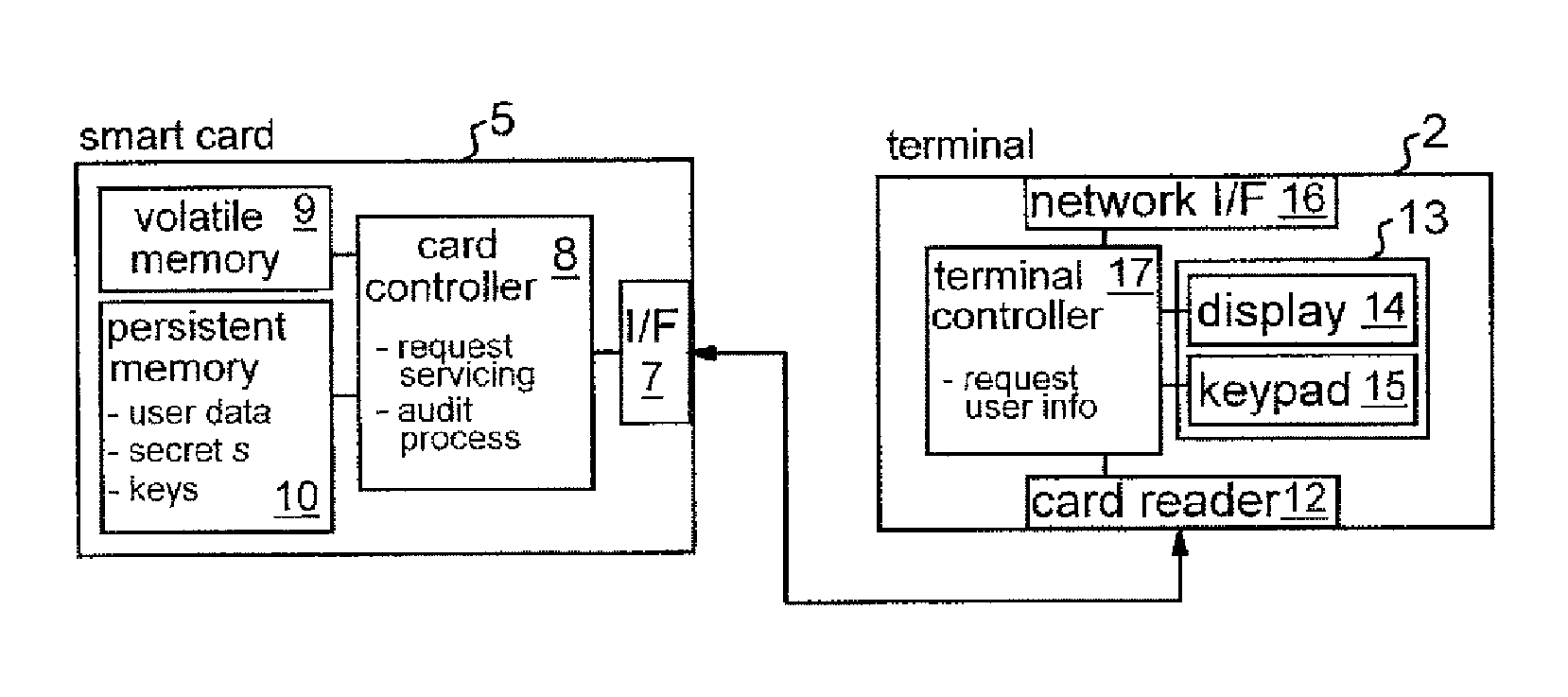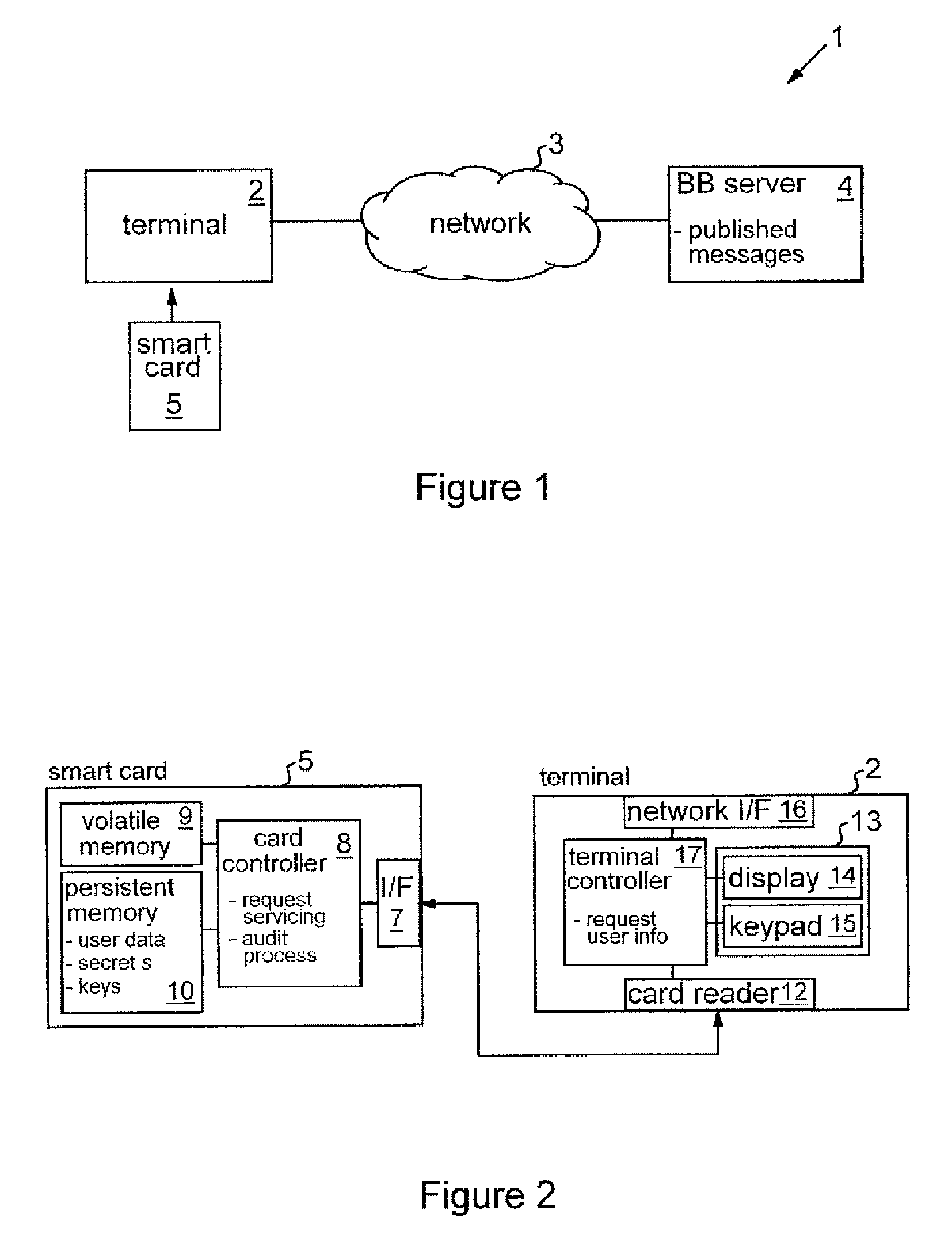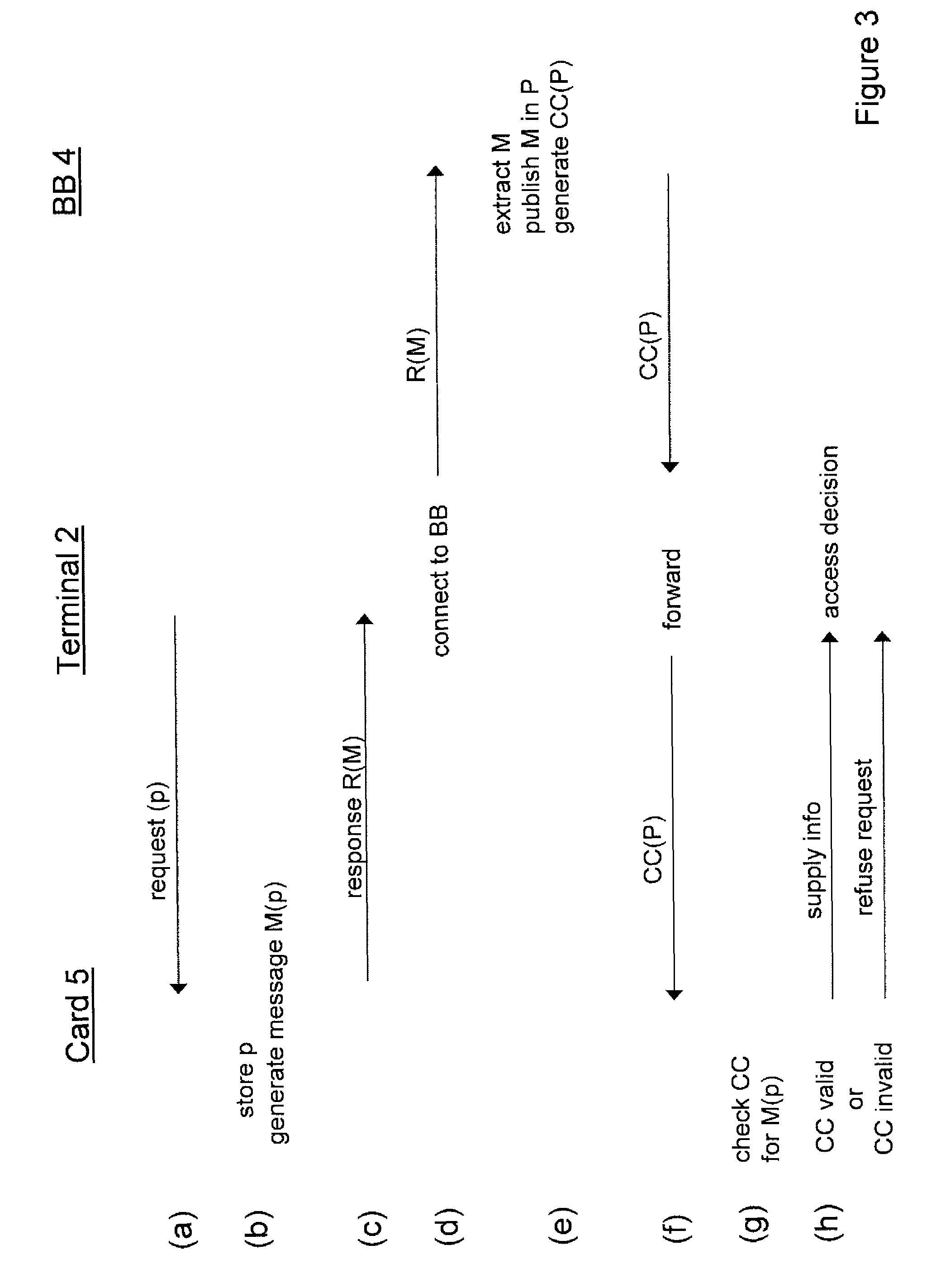Transaction auditing for data security devices
a technology for data security devices and transactions, applied in the direction of digital transmission, securing communication, instruments, etc., can solve the problems of difficult to obtain reliable audit information for this purpose, difficult to ensure the integrity of the information exchange between the terminal and the security device, and the typical data security device, like the smart card, generally does not have its own user interface. achieve the effect of ensuring the unlinkability
- Summary
- Abstract
- Description
- Claims
- Application Information
AI Technical Summary
Benefits of technology
Problems solved by technology
Method used
Image
Examples
Embodiment Construction
[0043]FIG. 1 shows a data communications system 1 embodying the invention. The system 1 includes a terminal device 2 which is connectable to a data communications network 3 for communication with other devices via the network. Network 3 may in general comprise one or more component networks or internetworks, including the Internet. System 1 also includes a publication entity represented here by server 4 which is connected to network 3. Server 4 provides a trusted bulletin board (BB) service to network 3 as discussed further below. (Although indicated as a single block here, in general the functionality of server 4 could be distributed over a plurality of physical machines of a server system). A data security device in the form of smart card 5 can interact with terminal device 2 in the system. The smart card 5 incorporates an embedded chip (not shown as such) containing user data relating to the holder of the card (the “user”).
[0044]FIG. 2 is schematic block diagram of the terminal d...
PUM
 Login to View More
Login to View More Abstract
Description
Claims
Application Information
 Login to View More
Login to View More - R&D
- Intellectual Property
- Life Sciences
- Materials
- Tech Scout
- Unparalleled Data Quality
- Higher Quality Content
- 60% Fewer Hallucinations
Browse by: Latest US Patents, China's latest patents, Technical Efficacy Thesaurus, Application Domain, Technology Topic, Popular Technical Reports.
© 2025 PatSnap. All rights reserved.Legal|Privacy policy|Modern Slavery Act Transparency Statement|Sitemap|About US| Contact US: help@patsnap.com



